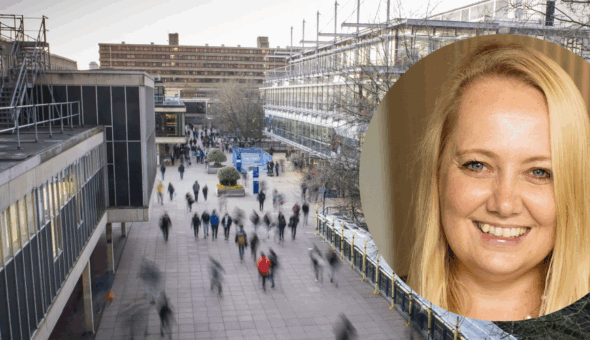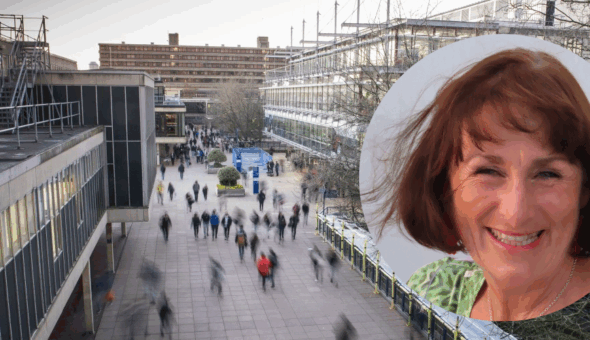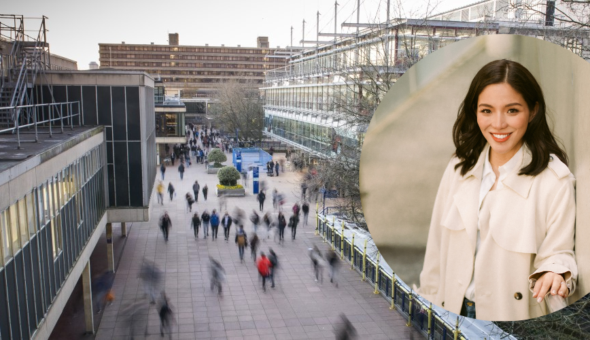One of main lessons Floyd took away from studying physics at Bath was the importance of learning the basics in your chosen discipline.
It is with this knowledge that Floyd was able to solve real-world problems throughout his placement year and future career – which included the design, build and operation of various equipment in several companies including the UK Atomic Energy Authority and Marconi Research Centre.
Read on to hear Floyd’s experience at Bath and journey after graduation.
Why did you choose to study at Bath?
Most universities offered physics courses and I reviewed a number of prospectuses, but I was attracted to Bath because it was campus based, not too far or too close to home, offered the opportunity to do a placement year and had by far the shortest prospectus. I probably didn't know enough to distinguish between the topics to be studied.
Did you have a particular career in mind when you chose your course?
I thought about doing a degree in mechanical or aeronautical engineering as these seemed to offer a direct route to a career, but I decided to pursue a degree in physics as this was really where my interests lay and kept open a range of options. I ended up doing electronics engineering, but I'm pretty sure I didn't know much about this when I was at school.
Can you tell us about your experience of studying here?
I found few differences between studying at school and at Bath. The physics classes were of similar size, as were the classrooms. Maths classes, which we shared with some other disciplines, were in ‘proper’ lecture theatres, which was nice.
I spent most of my time on campus – I enjoyed running around the playing fields and walking to Sham Castle. But it would be less than honest if I didn't own up to spending way too much time playing Dungeons and Dragons.
You took part in a placement – can you talk a bit about that experience?
I spent a year working for the UK Atomic Energy Authority at Culham Laboratories doing experimental work on a tokamak [a tokamak is a machine which uses a powerful magnetic field generated by external magnets to confine plasma in the shape of an axially-symmetrical torus].
I got to design, build and operate various equipment. This involved optics, electronics and software for analysis and visualisation. I had little experience of any of these things but found that colleagues were always willing to point me in the right direction.
I was lucky enough to be at Culham when the JET project, which was on the same site, ran its first plasma. Even though I wasn't involved with this, the excitement inherent in a ‘big science’ project was palpable. I looked at opportunities to join such a project later, but my career took me in other directions.
How did your studies help you to develop, professionally and/or personally?
I think the main thing I took away from my studies was the importance of learning the basics – to be able to apply them and have the confidence to learn anything new that is required to solve real-world problems. Many things I learnt have now been superseded as technology has progressed, but the fundamentals remain unchanged. I developed skills that enabled me to design and execute experiments, analyse results and draw conclusions – all skills that have been valuable in many guises throughout my career.
Describe your career journey since graduating.
I retired in June 2022, at which time I was the COO of a small (about 25 staff) electronics company developing radio equipment, particularly for cellular mobile applications. So, how did I get there?
On graduating I joined the Marconi Research Centre working mainly on radar, navigation and communication systems. I had expected to learn about practical electronics, circuit design and the like, but found myself doing a lot of analytical work and software. I persuaded the company to let me take a part-time MSc in Mathematics to support this type of work. I spent 15 years at Marconi, developing both theoretical and practical skills in signal processing and learning to lead a team.
The next 25 years were largely spent in a handful of start-ups working in mobile telephony, mainly concerned with developing modems. I tended to move companies to stay technical, although I seemed to drift into broader roles, including project and product management, team and group leadership until, towards the end of my last job, my focus turned to company organisation, HR, accounts and generally anything that no one else wanted to do.
Since retiring, I've spent some time trying to understand quantum computing.
What advice would you give to prospective students thinking about studying your course at Bath?
First, with the benefit of hindsight, it seems to me that the most valuable thing you have doing a first degree is the time to study. With resources like YouTube, Wikipedia and so on, this is easier than ever, and at university you have access to classmates with similar interests and experienced staff who can help contextualise what you learn.
Second, it's good to have a plan, but one that is sufficiently flexible so you can pursue your interests. You will spend a lot of time working, so it may as well be fun.
Respond



